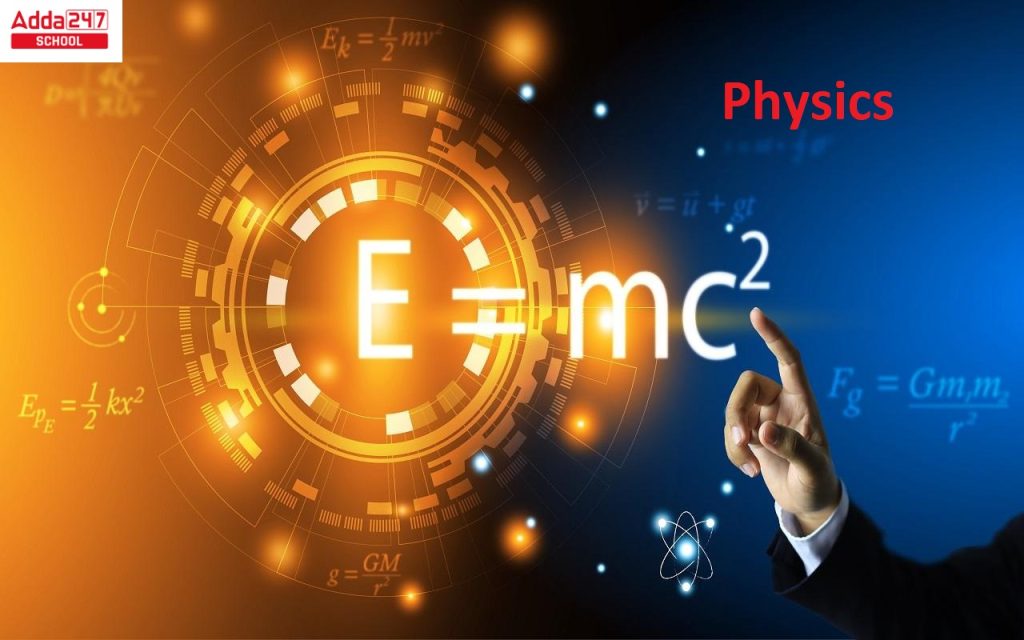
Physics: Physics is a natural science that deals with the study of matter, energy, space, time, and the fundamental forces that govern the universe. It seeks to understand the fundamental principles and laws that govern the behaviour of the physical world.
Physics Definition
Physics is the area of study that focuses on the composition and characteristics of matter and energy. Physics covers the following topics: electricity, magnetism, sound, heat, light and other radiation, and atomic structure. In other words, everything that exists in the physical world, from the tiniest subatomic particles to the cosmos, is studied in physics. Physics is a fundamental subject in all of the natural sciences, and each of these subjects includes subfields known as astrophysics, geophysics, biophysics, and even psychophysics, which focus specifically on physical principles and measurements.
Key Areas of Physics:
- Classical Mechanics: This branch of physics deals with the study of motion and the forces acting on objects. It includes concepts like Newton’s laws of motion, momentum, energy, and gravitation.
- Electromagnetism: Electromagnetism deals with the study of electric and magnetic fields and their interactions with charged particles. It includes concepts like Coulomb’s law, Gauss’s law, Faraday’s law of electromagnetic induction, and Maxwell’s equations.
- Thermodynamics: Thermodynamics is the study of heat, temperature, and energy transfer. It includes concepts like the laws of thermodynamics and the behavior of gases, liquids, and solids.
- Optics: Optics is the study of light and its interactions with lenses, mirrors, and other optical devices. It includes concepts like reflection, refraction, diffraction, and the nature of light.
- Relativity: Relativity is a theory developed by Albert Einstein that deals with the behavior of objects moving at high speeds or in strong gravitational fields. It includes both special relativity (for high speeds) and general relativity (for gravity).
- Quantum Mechanics: Quantum mechanics is the branch of physics that deals with the behavior of particles at the atomic and subatomic level. It introduces concepts like wave-particle duality, quantization of energy, and Heisenberg’s uncertainty principle.
- Nuclear Physics: Nuclear physics focuses on the study of the structure, properties, and interactions of atomic nuclei. It includes topics such as nuclear reactions, radioactivity, and nuclear fission and fusion.
- Particle Physics: Particle physics is the study of subatomic particles and their interactions. It involves understanding the fundamental particles of the universe and the forces that act on them.
- Astrophysics and Cosmology: Astrophysics deals with the study of celestial bodies and phenomena in the universe, such as stars, galaxies, and black holes. Cosmology focuses on the large-scale structure and evolution of the universe as a whole.
Physics plays a crucial role in advancing our understanding of the natural world and has led to countless technological advancements that have shaped modern society. It forms the foundation for many other scientific disciplines and is essential for solving complex problems across various fields.
As the Physics subject is central to all the exams of the Science field (both medical & Non-Medical) and government exams, we at Adda247 are providing students with the best study notes for Physics that will be beneficial for every competitive exam.
The Physics notes is given below branch wise. Check Out the notes for important topics in every domain of Physics for all classes and competitive exams.
Physical World and Measurement
Kinematics
- Projectile Motion
- Distance Travelled Formula
- Kinematics Equations
- Velocity Formula
- Acceleration Formula
Laws of Motion
Work, Energy, and Power
Motion of Systems of Particles and Rigid Body
Gravitation
Properties of Bulk Matter
Thermodynamics
Behavior of Perfect Gasses and Kinetic Theory of Gasses
Oscillations and Waves
Electrostatics
Current Electricity
Magnetic Effects of Current and Magnetism
Electromagnetic Induction and Alternating Currents
Optics
- Concave Mirror
- Snell’s Law
- Scattering of Light
- Wave Optics
- Young’s Double Slit Experiment
- Interference of Light
- Lens
Dual Nature of Radiation and Matter
Atoms and Nuclei
Electronic Devices
Mathematical Notes for Physics
Miscellaneous
- Cryogenic Engines
- Mechanical Advantage
- Solar System
- How to Convert Km/h to m/s
- SI Unit of Temperature
- Types of Clouds
- Meaning of Density
- Father of Physics
- Beer Lambert Law
Project Work
The Project work like practical files, investigatory projects, etc. are an important part of the Physics subject. To help students in this regard, we are providing students with the notes related to project work here.











